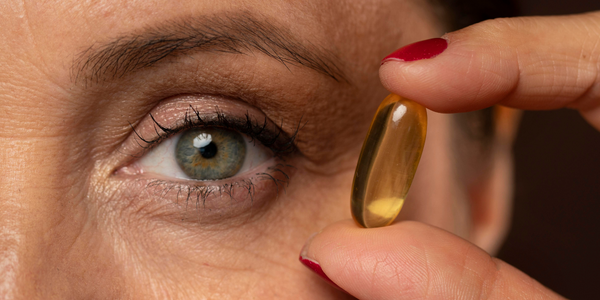Inulin is naturally produced in plants and is a huge source of energy. It is added to various food products for its amazing list of benefits for the human body. In this article, let’s try to understand what inulin is and how it can help you!
What is Inulin?
Inulin is a type of fiber that is found in various foods such as onions, garlic, artichokes, and chicory root. It is mainly extracted from chicory root to be added to other food items for its amazing health benefits. Since it is a dietary fiber, it helps in improving gut health, weight loss, satiety, heart health and more.
Inulin is also a fructan. Fructans are basically a type of fructose or sugar that acts as a prebiotic for the gut by feeding the good bacteria. The gut bacteria then converts inulin into short chain fatty acids that help enhance colon health and provide a range of other benefits.
Benefits of Inulin
Adding inulin to your diet may have some significant benefits for your gut and overall health. Let’s take a look at these benefits below.

Benefits of inulin for gut
Inulin helps bring a balance to the gut microbiota, in terms of good and bad bacteria populations. This balance of bacterias in the gut helps in keeping your digestive system in check. Not just that but it also ensures better immunity and overall health.
Your gut, roughly, contains around 30000 species of bacteria - a portion of which can be harmful for your body. Inulin stimulated the production of bifidobacteria and lactobacili - both of which are probiotics important for gut health. They fight unwanted pathogens in the body, prevent the risk of infections, and bulk up your stool, thereby promoting bowel movement.
There is also research that suggests inulin promotes better absorption of calcium in your body, thereby improving skeletal health.
Controlled blood sugar levels
There is research that suggests inulin fibers prevent the risk of developing type 1 diabetes - by improving gut health and the immune response of your body. It also helps in lowering bad cholesterol levels in the body. On the other hand, inulin also showed to improve the good cholesterol levels in your body and reduced the fasting insulin and blood sugar - both related to type 2 diabetes. There is more research underway for this.
Lowered risk of colon cancer
Inulin, being a dietary fiber, can help in reducing the risk of colon cancer. Some research also suggests that it can protect the cells in the colon - thereby reducing the chances of developing precancerous colon growths and spurts. However, more research is needed on this subject before any claims are made.
Weight & appetite
Fiber in inulin helps keep us full for longer periods of time - and also carries with it zero calories. It also reduces our overall calorie intake, thereby preventing obesity or overweight problems.
Enhanced calcium absorption
Inulin promotes calcium and magnesium absorption in the body, as per research. This helps promote the bone mineral density and thereby improve our skeletal health. Calcium also enhances the formation of bones and teeth, relieves constricted blood vessels, and improves muscle movement and hormonal balance.
Inulin consumption is considered safe for human consumption, however, if you have a chronic condition, are pregnant or breastfeeding, then it is best to consult with a doctor before adding any nutrient or supplement to your diet.
References
- Shoaib M, Shehzad A, Omar M, Rakha A, Raza H, Sharif HR, Shakeel A, Ansari A, Niazi S. Inulin: Properties, health benefits and food applications. Carbohydr Polym. 2016 Aug 20;147:444-454. doi: 10.1016/j.carbpol.2016.04.020. Epub 2016 Apr 8. PMID: 27178951. (https://pubmed.ncbi.nlm.nih.gov/27178951/)
- Hiel S, Bindels LB, Pachikian BD, et al. Effects of a diet based on inulin-rich vegetables on gut health and nutritional behavior in healthy humans. Am J Clin Nutr. 2019;109(6):1683-1695. doi:10.1093/ajcn/nqz001 (https://www.ncbi.nlm.nih.gov/pmc/articles/PMC6537941/)
- Hoffman, Jared D et al. “Dietary inulin alters the gut microbiome, enhances systemic metabolism and reduces neuroinflammation in an APOE4 mouse model.” PloS one vol. 14,8 e0221828. 28 Aug. 2019, doi:10.1371/journal.pone.0221828 (https://www.ncbi.nlm.nih.gov/pmc/articles/PMC6713395/)
- Pool-Zobel BL. Inulin-type fructans and reduction in colon cancer risk: review of experimental and human data. Br J Nutr. 2005 Apr;93 Suppl 1:S73-90. doi: 10.1079/bjn20041349. PMID: 15877900. (https://pubmed.ncbi.nlm.nih.gov/15877900/)
- Guess, Nicola D et al. “A randomized controlled trial: the effect of inulin on weight management and ectopic fat in subjects with prediabetes.” Nutrition & metabolism vol. 12 36. 24 Oct. 2015, doi:10.1186/s12986-015-0033-2 (https://www.ncbi.nlm.nih.gov/pmc/articles/PMC4619305/)\
- Raschka L, Daniel H. Mechanisms underlying the effects of inulin-type fructans on calcium absorption in the large intestine of rats. Bone. 2005 Nov;37(5):728-35. doi: 10.1016/j.bone.2005.05.015. Epub 2005 Aug 29. PMID: 16126464. (https://pubmed.ncbi.nlm.nih.gov/16126464/)
- Abrams SA, Hawthorne KM, Aliu O, Hicks PD, Chen Z, Griffin IJ. An inulin-type fructan enhances calcium absorption primarily via an effect on colonic absorption in humans. J Nutr. 2007 Oct;137(10):2208-12. doi: 10.1093/jn/137.10.2208. PMID: 17884999. (https://pubmed.ncbi.nlm.nih.gov/17884999/)

























